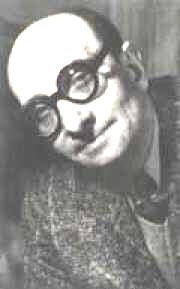Carol (Radu Gyr)
Christmas, come back here
Console the exile
Falling white snow
Over my life
Over my soul - snow
Falling white snow
Over my life
Which is here ending
Blue stars are trembling
Over my tears
God from above
In hearts planted
Only heavy tears
God from above
In hearts planted
Sparkling (throbbing) of stars
Only my poor (sad) house
Is like stone under frost
We sit in heavy darkness
For us is no star
The sky is not shining
For shivering
The angels in hurry
Bring no carols
O Jesus King
Forgive our mistakes and sins
Come and softly close
Wounds that hurt
The dream open (unlocked)
We wait on you
That on your cross
We are nailed
The Lord's clean mother
Bring good news
To bloom on the doorway/threshold
Your dear smile
As a sunny day
Your dear smile
We wait on the doorway
We, from prison
Over happiness, gone
Stretch your pity, O Jesus
We from prisons
We wait in the morning
Their breast sobbing
The one from prisons
We wait in the morning
To bring the light
'A Venit Si-Aici Craciunul' or 'Colind' words by Radu Gyr (rough translation by Magdalena and Dave Davis 2003)
This is a rough translation of the poem-song, 'A Venit Si-Aici Craciunul’, that Romanian poet Radu Gyr wrote to the popular Christmas tune of ‘O Ce Veste Minunata’ (perhaps in 1947 or 48). As you can see by the lyrics, he wrote this in prison. It seems like he is saying that the snow is like a blanket of gauze to cover the 'wounds' (spiritual or physical) of the prisoners. This song came about when the Communists banned any celebration of Christmas, at least for these prisoners. The song was learned from prisoner to prisoner.

Radu Gyr
Radu Gyr (1905 -1975) was a teacher at the University at Cluj, Romania when he helped organize The Legion of St. Michael, a movement which led to The Iron Guard, part of the Romanian government. He was a leader of propaganda for songs. This was a fascist movement, which eventually took over the government from the king in Romania in the 1930-40's. Unlike the Nazis, these followers proclaimed God and Christ, and wanted a godly government (at times making everyone go to church). However, like the Nazis, they were anti-Semitic. Not only the
Legionnaires, but also the regular army, led some of the most ugly pogroms and Jewish holocaust. Adolf Eichmann even complained about the grossness. All this might explain the apparent tears of repentance in the poem/song.
It seems by 1944 the Romanian government either got tired of the slaughter, or they could see they were on the losing side with Russia advancing. So, they changed sides to the Allies, even with their own concentration camp. But this was all for naught. At the end of WWII, the atheist Communists took over.
Oh, I suppose Radu, like some of the other political prisoners were given life (?) with prison and hard labor (see first verse). While Radu was in prison in Aiud, Romania (the town my wife grew up in), he wrote/translated the Romanian version of O Christmas Tree: ‘O Brad Frumos’. That's pretty popular in Romania.
Radu was apparently Romanian Orthodox like the vast majority of churchgoers in Romania. I don’t endorse the 5th verse. I heard a nice rendition of this song (first four verses) last Christmas in a Romanian Baptist Church here.
So, one can see that Radu, apparently, had a repentant heart, but there was not an utter despair. Despite being an accessory to one of greatest crimes of the 1900’s, humanly speaking, he carried on. Like Saul at the stoning of Stephen, he takes responsibility for his actions afterward, but is not totally absorbed by it in his repentance. In the fourth verse, Radu correctly looks to Jesus as his substitute, taking his punishment for his (and others) sins.
Thanks for viewing this song. It was difficult for my wife to translate this one. It's not a happy song. But like with things like the holocaust museum and movies like Schindler's List, it's important to have this in memory to try to keep a corrective influence on societies. This is a more literal translation to show so the meaning is given. This song is in several places on the Web, but only in Romanian.
Dave Davis